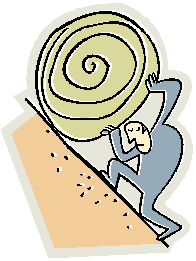The following is taken from The Communist
Manifesto by Marx and Engels (1848):
We have seen above, that the first step in the
revolution by the working class is to raise the proletariat to the
position of ruling class to win the battle of democracy.
The proletariat will use its political supremacy
to wrest, by degree, all capital from the bourgeoisie, to centralise all
instruments of production in the hands of the State, i.e., of
the proletariat organised as the ruling class; and to increase the total
productive forces as rapidly as possible.
Of course, in the beginning, this cannot be
effected except by means of despotic inroads on the rights of property,
and on the conditions of bourgeois production; by means of measures,
therefore, which appear economically insufficient and untenable, but
which, in the course of the movement, outstrip themselves, necessitate
further inroads upon the old social order, and are unavoidable as a
means of entirely revolutionising the mode of production.
These measures will, of course, be different in
different countries.
Nevertheless, in most advanced countries, the
following will be pretty generally applicable.
1. Abolition of property in land
and application of all rents of land to public purposes.
2. A heavy progressive or graduated income tax.
3. Abolition of all rights of inheritance.
4. Confiscation of the property of all emigrants and rebels.
5. Centralisation of credit in the hands of the state, by means of a
national bank with State capital and an exclusive monopoly.
6. Centralisation of the means of communication and transport in the
hands of the State.
7. Extension of factories and instruments of production owned by the
State; the bringing into cultivation of waste-lands, and the improvement
of the soil generally in accordance with a common plan.
8. Equal liability of all to work. Establishment of industrial armies,
especially for agriculture.
9. Combination of agriculture with manufacturing industries; gradual
abolition of all the distinction between town and country by a more
equable distribution of the populace over the country.
10. Free education for all children in public schools. Abolition of
children’s factory labour in its present form. Combination of education
with industrial production, &c, &c.
When, in the course of development, class
distinctions have disappeared, and all production has been concentrated
in the hands of a vast association of the whole nation, the public power
will lose its political character. Political power, properly so called,
is merely the organised power of one class for oppressing another. If
the proletariat during its contest with the bourgeoisie is compelled, by
the force of circumstances, to organise itself as a class, if, by means
of a revolution, it makes itself the ruling class, and, as such, sweeps
away by force the old conditions of production, then it will, along with
these conditions, have swept away the conditions for the existence of
class antagonisms and of classes generally, and will thereby have
abolished its own supremacy as a class.
In place of the old bourgeois society, with its
classes and class antagonisms, we shall have an association, in which
the free development of each is the condition for the free development
of all.
 -----------------------------------------------------------------------
-----------------------------------------------------------------------